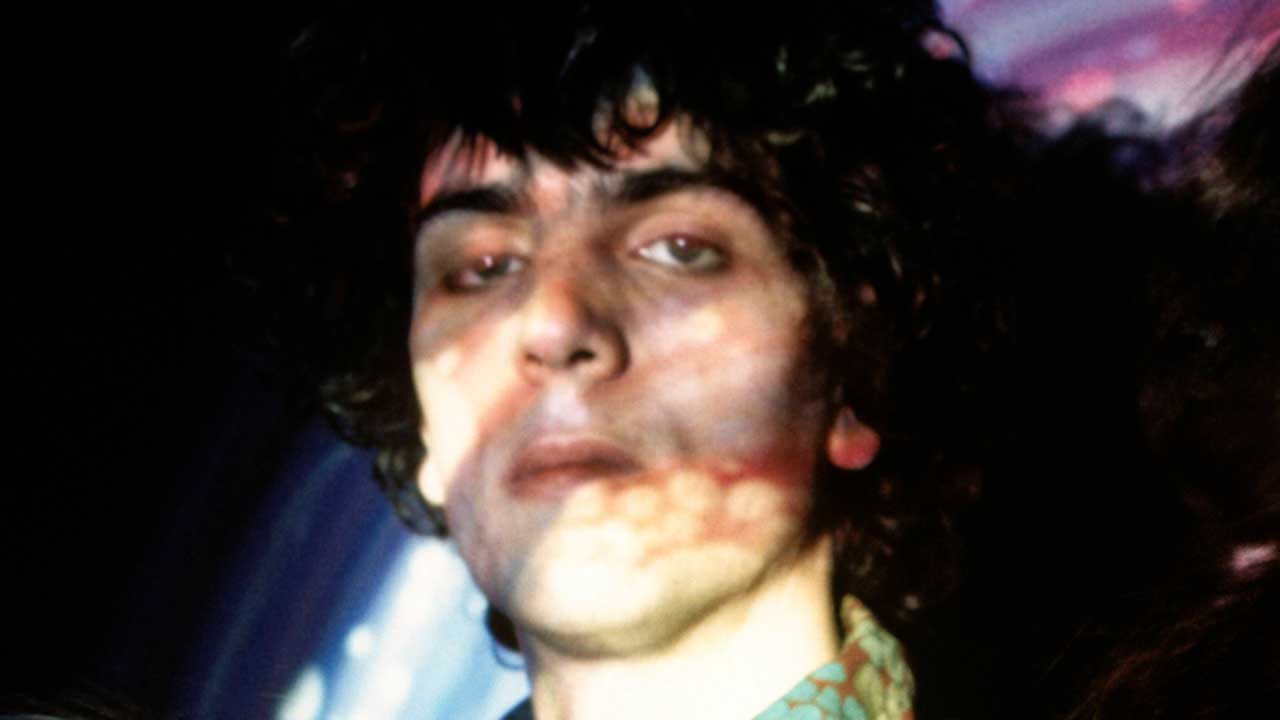
In summer 1975, Pink Floyd were struggling with ninth album Wish You Were Here. With Roger Waters intent on moving onto a new path, and David Gilmour and Rick Wright content with the road they were already on, the group found it a challenge to agree on a direction.
Into this turmoil, a strange-looking overweight man with shaved head and eyebrows appeared among the band members at their Abbey Road studio on June 5, 1975. It took them some time to realise it was the former tousle-topped Bohemian Syd Barrett – the former leader they’d felt force to abandon five years earlier.
At the time of the line-up change, Barrett’s psychedelic genius had become overshadowed, apparently, by a combination of psychedelic drugs and his mental condition. Unable to work with him any longer, the band had made the decision to move on – and in doing so, set a course to become the world’s leading prog band.
Nick Mason recalled the event, as reported by Prog, speculating on what Barrett hoped to achieve. “It’s very easy to draw parallels with Peter Pan returning to find the house still there and the people changed,” the drummer said. “Did he expect to find us as we had been seven years earlier, ready to start to work with him again?
“Everyone’s story is fractionally different. Whether he came once, or twice, what he said, all the rest of it. All I can say is that he was definitely there, and it was weird.”
In some accounts, Barrett arrived while Floyd were mixing Shine On You Crazy Diamond – the subject of which was Barrett himself. Waters is said to have been reduced to tears after realising the stranger’s identity. It’s reported that, on being asked what he thought of the music, Barrett said simply: “Sounds a bit old.”
Session vocalist Venetta Fields was there. “They never told me about Syd – I read everything I know about him,” she recalled. “Nobody really recognised him. I didn’t know who he was. They spoke to him for a while, and we got on with the session.”
She added: “I could see the impact he had on them that day. They were shocked to see him there, and really shocked at the way he looked and acted.”
A few years later, Barrett returned to the anonymity of his mother’s home in Cambridge, where he studiously avoided the limelight. He never stopped creating, though – he kept composing songs, enjoyed painting and wrote a book about the history of art. He died in 2006, aged 60, from cancer.
His sister Rosemary later insisted that, while he’d spent a short time in a “private home for lost souls” and had seen a psychiatrist, he wasn’t on medication or therapy. While he avoided media attention, she said, he was actively involved in the lives of his nieces and nephews, and was known to chat with the staff of shops he frequented.
He could have given a fantastic amount… if he had stayed right he could have beaten Ray Davies at his own game
David Gilmour
“He avoided contact with journalists and fans,” Rosemary reported. “He simply couldn’t understand the interest in something that had happened so long ago and he wasn’t willing to interrupt his own musings for their sake.”
Prog observed: “Syd would paint large canvasses, photograph them and then destroy them. He didn’t like to be reminded of the past; he went round to his sister’s to watch a BBC TV documentary about him and the Pink Floyd, but left, complaining that it was ‘too loud.’”
Gilmour once described Barrett as “one of the great rock’n’roll tragedies,” adding: “He was one of the most talented people and could have given a fantastic amount. He really could write songs, and if he had stayed right, could have beaten Ray Davies at his own game.”
The guitarist later admitted: “We probably did about as much as we could have – although we were all very young. But I have a regret or two. I never went to see him, even though his family kind of discouraged it.
“I regret that I never went up to his house and knocked on the door. I think both Syd and I might have gained something out of one or two people popping round to his house for a cup of tea.”
We like to think that a neighbour was giving Syd the secret knock and whispering, ‘It’s okay, they’ve buggered off back to London’
Tommy Udo
Prog’s Tommy Udo recounted a 2006 trip to Cambridge, with the intention of meeting Barrett at home. Knocking the door produced no results; nor did pushing a note under the entrance. Udo and his companion gave up after waiting outside until after midnight.
“We like to think that a neighbour was giving Syd the secret knock and whispering, ‘It’s okay, they’ve buggered off back to London.’ Syd would then emerge from his refuge, make a cup of tea, pick up his guitar and then sing one of the many songs that he’d written but never recorded – songs that he alone would ever hear.”







